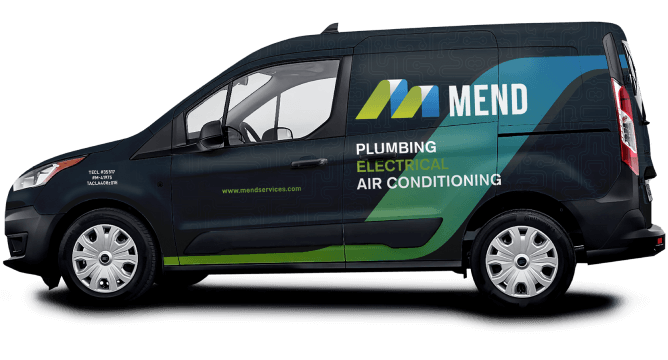When plumbing emergencies happen in your Austin, TX home, they disrupt your life. They can also lead to costly damage if you don’t fix them quickly. It’s important to know a reliable emergency plumber who will respond quickly, no matter what time of day or night. With a commitment to honesty, courteous service, and the latest training, we provide the emergency plumbing response that you can rely on.
Emergency Plumber in Austin, TX
Schedule NowEssential Facts About Emergency Plumbing
Plumbing emergencies often happen unexpectedly, but they can also come with warning signs. In any case, they are stressful and potentially hazardous, so it’s essential to call our trained specialists right away to prevent costly flooding damage or hazards from waste contamination. Some of the most common emergency plumbing problems include burst pipes, sewage backup, overflowing toilets, and severe pipe leaks. When you encounter any of these, call us immediately to respond to the situation.
Burst pipes are alarming, but a pipe leak can be a more subtle problem that you also must not ignore. These types of pipe damage can occur due to old plumbing, unusually high water pressure, and severely cold temperatures. Water damage can occur as a result, and these emergencies can also promote mold growth and other hazards that lead to costly repairs. Keep our emergency response number handy in case this happens. If you have a burst pipe, turn off the main water supply to the home while waiting for us to arrive.
A sewage backup can happen when a blockage develops in a nearby sewer line. As a result, wastewater can flow into your home or yard. This is a serious health risk that needs quick attention from our experienced plumbers. The longer the backup is present, the more damage and contamination there will be on your property. If this happens at your home, keep children and pets away from the sewage, and try to remove electrical appliances that are near the accumulating mess until we arrive.
Overflowing toilets are also a serious matter that you should attend to promptly. They can happen for several reasons, including a toilet flush malfunction, clogged pipes, flushing of foreign objects, water tank problems, clogged sewer lines, and other causes. Wastewater from an overflowing toilet is a biohazard, and it can also cause costly water damage, not to mention that a toilet is something you can’t live without. While waiting for us to respond, turn off the water supply to the toilet to stop it from overflowing.
- Regular maintenance
- Know shut-off valve locations
- Avoid flushing improper materials or objects
- Insulate pipes
- Take notice of changes in water pressure
- Get sewer lines checked regularly
Offering comprehensive plumbing solutions tailored to meet your needs, including emergency services and expert installation, maintenance, repair, and replacement of your home’s plumbing system.
- Emergency Services
- Plumbing Replacement
- Plumbing Maintenance
- Plumbing Repair
- Plumbing System Installation
Providing a full spectrum of sewer services, including unclogging pipes/drains, maintenance, hydro-jetting techniques, sewer repair, camera inspections and precise excavation and tunneling services.
- Clogged Pipe & Drains
- Drain Clearing/Maintenance
- Sewer Repair/Maintenance
- Hydro-Jetting
- Camera Inspection
- Excavation Service
Specializing in water line services, including leak detection, expert water leak and waterline repairs, seamless waterline replacement services, and comprehensive pipe replacement solutions that fit your home’s needs.
- Leak detection
- Water leak Repairs
- Waterline Repairs
- Waterline Replacement
- Pipe Replacement
Our turn-key water heater services include expert installation, proactive maintenance, efficient repairs, seamless replacements, and options for energy-efficient tankless water heater systems.
- Water Heater Installation
- Water Heater Maintenance
- Water Heater Replacement
- Water Heater Repair
- Tankless Water Heaters
Emergency Plumber in Austin
No matter what your plumbing emergency is in Austin, it’s vital to have our number handy any time of day or night. We have upheld the values and service that have earned us an A+ rating, and we’re committed to providing the latest and most effective plumbing solutions. Our whole Home Wellness Plans keep our customers’ homes safe, healthy, and efficient. By recruiting the best team members and keeping them trained in the latest technologies, we ensure the highest standards of quality and professionalism.
If you need an emergency plumber in Austin, contact Mend Services today.
Also, discover our other plumbing services!


Austin Service Area
Greater Austin & the surrounding areas
- Austin
- Bastrop
- Bee Cave
- Buda
- Cedar Park
- Del Valle
- Driftwood
- Dripping Springs
- Georgetown
- Hutto
- Kyle
- Lakeway
- Leander
- Liberty Hill
- Lockhart
- Manchaca
- Manor
- New Braunfels
- Pflugerville
- Round Rock
- San Marcos
- Spicewood
- Wimberley
Don’t see us in your area?
Give us a call at (512) 206-3188
Testimonials
See why our customers trust Mend
I will not hesitate to use them again!!


Contact Mend Today
©2025 Mend Services. All Rights Reserved.
This site is protected by reCAPTCHA and the Google Privacy Policy and Terms of Service apply.
Web Design and Internet Marketing by RYNO Strategic Solutions










